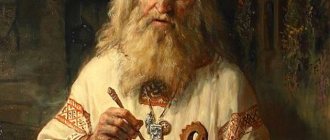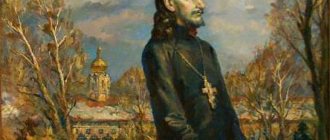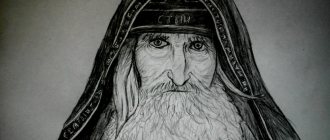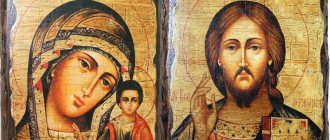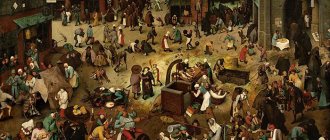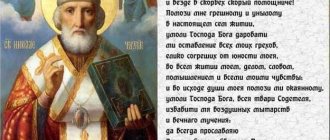Biography
A legend that helps some people cope with stressful situations says that a long time ago there lived King Solomon. The life of this wise ruler was not calm, so he turned to the court philosopher for advice. The Thinker told his master about a priceless magic ring on which was engraved “Everything passes.”
“When you feel great anger or great joy, look at this inscription and it will sober you up. In this you will find salvation from passions!” the sage used to say to the king.
Much time passed, Solomon pacified his anger with the help of this precious gift. But one day, looking at this laconic inscription, Solomon did not calm down, but, on the contrary, lost his temper. And then the enraged king tore the ring off his finger in the hope of throwing it further into the pond, but noticed that on the back of the jewelry it was written “This too shall pass.”
Ring of Solomon
There are debates about the biography of King Solomon to this day. Some believe that the son of David actually lived, others are sure that the wise ruler is a biblical falsification. Be that as it may, Solomon is an integral character of the Christian and Islamic (Suleiman) religions, who left a mark on culture: his image is used in paintings, prose, poetry, films and cartoons.
Hard work
“Go to the ant, slothful one, look at its actions, and be wise. He has neither a boss, nor a guardian, nor a master; but he prepares his grain in the summer, and gathers his food in the harvest. How long will you sleep, lazy man? when will you arise from your sleep? You will sleep a little, doze a little, lie down with folded hands for a little: and your poverty will come like a passerby, and your need like a robber” (Prov. 6:6-11).
“He who gathers in summer is a wise son, but he who sleeps in harvest is a dissolute son” (Prov. 10:5).
“Whoever tills his land will be satisfied with bread; but he who follows in the footsteps of the idle is foolish” (Prov. 12:11).
“The path of the lazy is like a wattle fence, but the path of the righteous is smooth” (Prov. 15:20).
Origin of King Solomon
Solomon was born in 1011 BC. in Jerusalem. The only source indicating the reality of the existence of the legendary ruler of the united kingdom of Israel is the Bible. Therefore, to this day, biographers and scientists cannot confirm or deny whether Solomon is a historical figure.
Judging by the description of God's book, Solomon is the son of the second king of Israel, David. According to the New Testament, the Messiah from the line of David through the male line is Jesus Christ.
Portrait of Solomon
Before ascending the throne, David was a simple shepherd, and at the same time he showed himself to be not only kind and trustworthy, but also strong and courageous: in order to protect his sheep, he could deal with a lion or bear with his bare hands.
Solomon's parent, Bathsheba, was the daughter of Eliam and, according to the Bible, had a rare appearance: David, walking through his domain, saw Bathsheba bathing, and her beauty struck the king on the spot. Therefore, David ordered the girl he liked, who at that time was considered the wife of Uriah the Hittite, a soldier in David’s army, to be delivered to the palace. Bathsheba became pregnant, and then the treacherous David ordered the Hittite commander in a letter so that the husband of his beloved would not return from the battlefield alive:
“Place Uriah where the battle is strongest, and withdraw from him, so that he may be struck and die” (Samuel 11:15).
After this incident, David acquired ill-wishers, and Nathan (Nathan), who is listed in the Holy Scriptures as a prophet and one of the authors of the Book of Kings, cursed the leader, dooming his future to fratricidal conflicts.
Portrait of Solomon
Later, David repented of his treacherous act and begged God for forgiveness on his knees. The Prophet said that the Lord forgave the one who wished death to another person, but reminded:
“...they must pay four times for a sheep.”
Thus, there was a lot of bitterness and sadness in David's life: his youngest son died, and his daughter Flamar was raped by his son Amnon (who died at the hand of his brother). In due course, the king’s son was born. By naming their son Solomon, David and Bathsheba predetermined the future of their son, because the name Sholomo translated from Hebrew meant “peace” (i.e. “not war”). In fact, Solomon was afraid of armed conflicts, so during his reign he did not use a large army.
Solomon and the ring
Solomon’s second symbolic name, Jedidiah (translated as “beloved of God”), was given to him in honor of the Almighty’s condescension to David, who admitted that he had committed one of the seven deadly sins - adultery. Bathsheba was a pious woman who always remained in the shadows. The beloved leader of the Israeli people did not go into details of politics, but was busy raising children.
Beginning of reign
According to legend, not paying attention to the fact that Solomon was the last of David’s sons, the king wanted to make the youngest son his successor. But the eldest son Adonijah also fought for power, having the right to do so, because according to ancient traditions, the crown belonged to him. Therefore, the true heir created a special detachment of bodyguards led by Joab and Abiathar. And, taking advantage of the weakness of his parent, he tried to win over Nathan, the brave Benei and the royal guard, but did not receive support from David’s subjects.
King Solomon's Dream
David learned from the lips of the prophet about the ongoing conspiracy, so he managed to anoint Solomon as king with myrrh in order to transfer to him the gifts of the Holy Spirit needed to rule the country. At the same time, God set a condition for the autocrat that he should in no way deviate from serving the Almighty. Having received the promise, the Creator endowed Solomon with wisdom and patience.
King Solomon's Court
There is a legend about Solomon's court, which proves the rationality of the ruler. Two women came to the king with a request to determine who the true mother of the child was. And then Solomon gave cruel advice: do not argue, but cut the child in half, so that each gets half. One of the parishioners said that so be it, and the other fell into panic and despair. Thus, Solomon resolved the debate and found out who is the true parent and who is just pretending.
Jerusalem in the time of Solomon
Therefore, Adonijah's usurpatory attempts were doomed to fiasco: the young man fled and found his refuge in the Tabernacle. It is worth noting that the newly-minted king forgave his brother and ordered mercy, but the fate of his comrades Joab and Abiathar was sad: the first was executed, and the second was sent into exile. However, Adonijah could not escape severe punishment, for he tried to marry Abishag the Shunammite, a servant of King David, asking Bathsheba to intercede for him with Solomon. But the wise king considered that his brother again wanted to claim his rights to the throne and ordered Adonijah to be executed.
Mercy
Do not refuse a benefit to someone in need when your hand has the power to do it. Do not say to your friend, “Go and come again, and tomorrow I will give,” when you have it with you (Prov. 3:27-28).
“A merciful man does good to his soul, but a hard-hearted man destroys his flesh” (Prov. 11:17).
“Whoever oppresses the poor blasphemes his Creator; but he who honors Him does good to the needy” (Prov. 14:31).
“The righteous man cares for the life of his livestock, but the heart of the wicked is hard” (Prov. 12:10).
“He who does good to the poor lends to the Lord, and He will reward him for his good deed” (Prov. 19:17).
“He who gives to the poor will not become poor; but whoever closes his eyes from it will have many curses on him” (Prov. 28:27).
However, some teachings are quite in the spirit of Domostroy: “Whoever spares his rod hates his son; but whoever loves disciplines him from childhood” (Proverbs 13:24).
Domestic and foreign policy
Having gotten rid of his dynastic rival, Solomon became the rightful ruler of Israel. The wise king, for political purposes, married the daughter of Pharaoh Shoshenq I, since Egypt at all times was considered a country with exceptional fertility and untold riches (one only has to remember the treasures of Queen Cleopatra).
Solomon and the Queen of Sheba
Having proposed marriage to the Nile beauty, the Jewish ruler received Tel Gezer, a biblical city in Israel (under Thutmose III, the country was dependent on the Egyptian rulers, so the city was given to the Egyptians). Also, the king received most of his money from the Via Regia (“Royal Road”) trade route, which started from Egypt and stretched to Damascus.
Temple of King Solomon in Jerusalem
It is also known that Solomon maintained friendly relations with the Phoenician king Hiram I the Great. When David's son became a full-fledged ruler, he began to fulfill the will left by his father and began building the temple. Therefore, Solomon asked for help from Hiram, who possessed untold wealth, and thus the rulers entered into an alliance with each other.
The Phoenician king sent Solomon cedar, cypress, gold, as well as builders, and in return received olive oil and wheat grain. However, the construction of the temple left Solomon in debt, so the leader of the Jewish people gave Hiram part of the southern lands.
Fresco "Solomon and the Queen of Sheba"
Among other things, there is a legend about the Queen of Sheba, who, having learned about the wisdom of the ruler of the kingdom of Israel, decided to test Solomon with riddles. They say that after the queen’s visit, Israel became a prosperous and gold-rich country:
“And she gave the king one hundred and twenty talents of gold and a great abundance of spices and precious stones” (1 Kings 10:2-10).
It is worth noting that this biblical story later became the basis for the creation of legends and traditions. Some writers decorated this story with Solomon’s love affair with his unexpected guest from Sabea, but the holy book was silent about the “non-business” relationship between the Queen of Sheba and the son of David. It is known that Solomon had 700 wives and 300 concubines.
Attitude towards wealth
True wealth, according to the author of the book of Proverbs, is achieved through hard work:
“A sluggish hand makes the poor, but the hand of the diligent makes rich” (Prov. 10:4).
“The hand of the diligent will rule, but the lazy will be under tribute” (Prov. 12:24).
“A lazy man does not roast his game; But the wealth of a diligent man is of great value” (Prov. 12:27).
“He who is careless in his work is the brother of the spendthrift” (Prov. 18:9).
“He treats unjust acquisitions with contempt:
“Whoever abuses the poor in order to increase his wealth, and whoever gives to the rich will become poor” (Prov. 22:16).
“The author puts wisdom and virtue above any wealth:
“A good name is better than great wealth, and a good reputation is better than silver and gold” (Prov. 22:1).
“Better is the poor man who walks in integrity, than the one who perverts his ways, although he is rich” (Prov. 28:6).
The sage calls not to judge the poor - after all, everyone who lives in abundance today may one day find themselves in their place:
“Whoever mocks a beggar blasphemes his Creator; whoever rejoices in misfortune will not go unpunished” (Prov. 17:5).
“Do not worry about acquiring wealth; leave such thoughts of yours. You fix your eyes on him, and he is no more” (Prov. 23:4-5).
The attitude towards wealth and poverty is revealed in the prayer of Agur, which is given at the end of the book of Proverbs:
“Two things I ask of You, do not refuse me, before I die: remove vanity and lies from me, do not give me poverty and wealth, feed me with my daily bread, so that when I am full, I do not deny [You] and say: "Who is the Lord?" and lest, having become poor, I should not steal and take the name of my God in vain” (Prov. 30:7-9).
End of reign and death
It is noteworthy that the king was a wise politician; during his reign, he managed to end famine, as well as bury the hatchet of war between the Jews and Egyptians. The Bible says that Solomon's beloved wife was a foreigner of a different faith. Therefore, the cunning woman persuaded her lover to build a pagan altar, which became a bone of contention between the Almighty and the ruler.
Solomon in old age
For this, the angry God promised the autocrat that after his reign, misfortunes would befall Israel. But even shortly before Solomon’s death, everything in the country was not rosy: due to construction projects, the royal treasury was empty, and in addition, uprisings of the Edomites and Arameans (conquered peoples) began.
The Talmud says that Solomon lived 52 years. The king died while overseeing the construction of a new altar. To prevent lethargic sleep, the leader’s body was not buried for a long time.
Chastity and fidelity in marriage
In the book of Proverbs there are many instructions about fidelity and chastity, both figurative: “Drink the water from your cistern and the water that flows from your well” (Prov. 5:15), and the most direct: “A commandment is a lamp, and instruction is light, and edifying teachings are the way to life, to protect you from a worthless woman, from the flattering tongue of a stranger. Do not desire her beauty in your heart, and do not let her captivate you with her eyelashes; because because of a prodigal wife they [become poor] to a piece of bread, but a married woman catches a dear soul” (Prov. 6:23-26).
Bible and mythology
According to ancient legends, after the global flood that destroyed the highly developed state of Atlantis, human civilization had to be rebuilt. As the new society developed, people found remains of the past culture, which also included technological advances.
The acquired knowledge and artifacts were valued highly because they contributed to the progressive development of those states that acquired them. As a result, there was a need to transfer them in such a way that all knowledge remained secret from ordinary people not close to the management of the state.
Treatise "The Keys of Solomon"
Therefore, a ban was adopted among the rulers on the written recording of knowledge; all information was passed on by word of mouth. King Solomon was the first leader who recorded all the accumulated esoteric knowledge from different traditions in writing. From the well-known works of the king, his treatise “The Keys of Solomon” has reached us. The “Small Key” consists of five sections, one of them, “Goetia,” describes 72 demons, which in current science are considered to be human hormones.
These papers gained popularity due to the original way of reading information - for ease of perception, some of the information in the manuscript is drawn with diagrams and symbols. Among these drawings, the “Circle of Solomon” (represents a model of the planet Earth and was previously used in fortune telling) and the “Star of Solomon” (based on the Indian doctrine of chakras, used in amulets) are of great importance. It is also believed that Solomon became the author of the Book of Ecclesiastes, the Song of Solomon, and the Book of Proverbs of Solomon.
Ancient poetry
Solomon's proverbs are poems. They are composed according to the laws of ancient versification, with parallelisms and a special rhythm. Many echo the psalms:
“Do not enter into the path of the wicked and do not walk in the way of the wicked” (Prov. 4:14) - “Blessed is the man who does not walk in the counsel of the wicked and does not stand in the way of sinners” (Ps. 1:1).
“The righteous will dwell on the earth, and the blameless will remain in it; but the wicked will be destroyed from the earth, and the treacherous will be uprooted from it” (Prov. 2:21-22) - “For the Lord knows the way of the righteous, but the way of the wicked will perish” (Ps. 1:6).
“You will not fear sudden fear or destruction from the wicked when it comes; for the Lord will be your trust and will keep your foot from being caught” (Prov. 3:25-26); “No evil will befall the righteous” (Prov. 12:21) - Cf. Ps. 90.
“The righteous will never be shaken, but the wicked will not dwell on the earth” (Prov. 10:30). - “A good man shows mercy and lends; he will give steadfastness to his words at the trial. He will never be shaken; the righteous will be remembered forever” (Ps. 112:5-6).
“A man cannot establish himself by iniquity; But the root of the righteous cannot move” (Prov. 12:3), “He who trusts in his wealth will fall; but the righteous will grow green like a leaf” (Prov. 11:28). - “And he will be like a tree planted by streams of water, which brings forth its fruit in its season, and whose leaf does not wither; and in everything he does, he will succeed. Not so - the wicked; but they are like dust blown away by the wind” (Ps. 1:3-4); “The righteous blooms like a palm tree and rises like a cedar in Lebanon. Planted in the house of the Lord, they bloom in the courts of our God” (Ps. 91:13-14).
The poetic form helped the ancient reader to more easily remember the teachings, so that they could then apply them in their lives. In translations, the poetic features of this book are lost: it is perceived as prose.
The structure of this book is a collection of essays from different eras. The parables of King Solomon begin only in chapter 10. It has this inscription. The book also contains parables of the mysterious king Lemuel and the sage Agur, son of Jacob (chapters 30 and 31). Nobody knows who they are. Some see in the first name a pseudonym for King Solomon (“Lemuel” means “devoted to God”) or King Hezekiah, under whom, it is believed, the collection of scattered scrolls of parables into one collection took place.
Image in culture
- 1614 – Rubens, painting “The Judgment of Solomon”
- 1748 – Handel, oratorio “Solomon”
- 1862 – Gounod, opera “The Queen of Sheba”
- 1908 – Kuprin Alexander, story “Shulamith”
- 1959 – King Vidor, drama “Solomon and the Queen of Sheba”
- 1995 – Richard Rich, cartoon “Solomon”
- 1995 – Robert Young, drama “Solomon and the Queen of Sheba”
- 1997 – Roger Young, documentary “King Solomon. The wisest of the wise"
- 1998 – Rolf Beyer, novel “King Solomon”
- 2012 – Vladlen Barbe, cartoon “The Seal of King Solomon”
Hope in the Lord
“Trust in the Lord with all your heart, and lean not on your own understanding” (Prov. 3:5). What kind of person would be called wise today if he said that one should not rely on reason? King Solomon calls the reader to do exactly this. Whole-hearted trust in God is the key to success in this temporary life, according to the author of Proverbs:
“Commit your works to the Lord, and your undertakings will be accomplished” (Prov. 16:3).
“A horse is prepared for the day of battle, but victory comes from the Lord” (Prov. 21:31).
